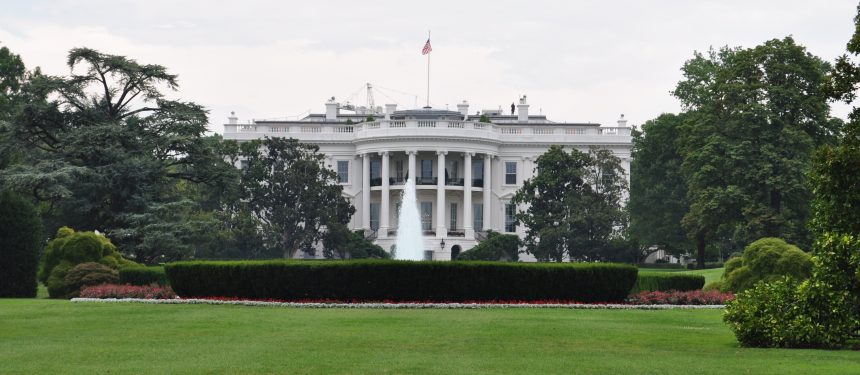The Trump administration is reportedly floating cuts to the J-1 visa route that may see reductions in the number of people from overseas coming to the US for seasonal work and exchanges.
News and business analysis for Professionals in International Education
Have some pie!
US: rumoured cuts to J-1 visa program
 Around 300,000 people from 200 countries come to the US on a J-1 visa each year. Photo: flickr/eric salard.
Around 300,000 people from 200 countries come to the US on a J-1 visa each year. Photo: flickr/eric salard. The J-1 visa route, specifically for cultural and educational exchange, includes the summer work travel program and the au pair program and is used for camp counsellors, trainees and interns.
It’s these particular categories within the visa group which are slated for the reductions, the Wall Street Journal reported last week.
“There isn’t a single state that doesn’t host these students”
The categories are reportedly being looked at by a White House-led interagency working group, and possibilities for reductions include eliminating the visa classes, and implementing new requirements on participants, according to White House sources.
While not confirmed, it is assumed that these possible cuts are considered as part of the wider review of foreign workers, under the President’s ‘Buy American, Hire American’ executive order, introduced in April.
The reported review of the visa category does not however include international students on J-1 visas for university-level study.
A State Department official told the WSJ that “we continue to implement the J-1 visa programs at the same levels we have for the past few years”, and added: “We appreciate the support that American businesses have shown for the program and its value to their local communities.”
However, those in the international exchange sector have expressed their disbelief that this program is being looked at at all.
“For this to be tied up in what is really, I think, an initiative by the White House to look at foreign workers taking full time jobs from Americans, they’re looking at the wrong program,” said Meghann Curtis, executive vice president of international exchange programs at CIEE.
While some of the J-1 visa programs use work as the mechanism for internationals to come to the US, the core purpose is the cultural exchange, emphasised Ilir Zherka, executive director of the Alliance for International Exchange.
“Under this executive order, J-1’s really don’t fit,” he said. “I was both shocked and disappointed last week – why would J-1’s be considered under an executive order that ostensibly is designed to protect American jobs? It’s problematic.”
Each year, around 300,000 people are admitted to the US on J-1 visas for various opportunities. And over a third of these participants are in one of the five mentioned categories.
“There isn’t a single state that doesn’t host these students,” said Curtis.
The impacts of any elimination of the visa categories would be felt far beyond recipients, stakeholders have argued.
Brett Bruen, president of the consulting firm Global Situation Room, said that drastic reductions would have a “chilling effect across all exchange programs”.
“This is one of the most popular opportunities for young people to spend time in the United States, especially those who can’t afford to attend an American university,” he said.
“They are going to quickly tell their friends and spread on social media that Trump’s made the country inhospitable, whether it’s for short stints in the summer or longer stays to study.”
The J-1 program is also crucial for people to people diplomacy internationally, said Zherka.
“[Program participants] impact people within their own home countries, their families, their communities [and] the communities that they become a part of when they come to the US,” he said.
American businesses will also be affected by the cuts, argued Curtis.
“I think that while it is a cultural exchange program first and foremost, there are thousands of businesses across the country that are completely reliant on summer work and travel workers to help them surge during peak season,” she said.
“There are thousands of businesses across the country that are completely reliant on summer work and travel workers”
She added that any pullback wouldn’t “open the floodgates of opportunity for Americans”, as J-1 programs aren’t jobs Americans typically would take, due to their occasional remote locations, and the fact that it is often seasonal work.
A recent study from research firm Eureka Facts, based on survey responses from 460 employers, found that 22% of the overall seasonal workforce across all participating study work travel businesses was formed of study work travel participants.
And 69% of respondents said there would be a ‘big impact’ on business if study work travel participants were unable to participate last season.
While stakeholders in the US are stepping up their advocacy for these cultural exchanges, “people abroad have a role here too,” said Zherka.
“It would be wonderful to see engagement from the diplomatic core here in the US on these programs,” he said. “Because I know that these programs are very important to countries and their governments all around the globe.”
Still looking? Find by category:



As President Trump wakes from the wrong side of his Japanese made bed under his Egyptian Cotton sheets, he reaches for his Chinese built phone to tweet whilst changing out of his Italian silk Pyjamas to type “Buy American, it’s very good”
The privately funded J-1 visa programs are an important U.S. foreign policy tool that helps to build greater understanding of the American people and culture around the world: https://www.aifs.com/savingJ1/